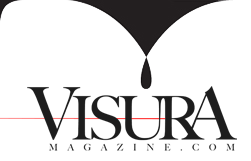
It was February 1991 when my feet first touched on the West African soil of Ouagadougou, Burkina Faso. And as if it were yesterday, those initial visuals remain vivid in my mind’s eye. Ouaga was so full of life. Motos (small motorcycles) filled the unpaved roads, weaving through the crowds creating a mirage of dust. Still, the vibrant colors of the Burkinabée women’s native dress illuminated as they balanced baskets of food on their heads and carried babies on their backs. Sculpturally coiffed young girls followed and Alpha Blondy (a West African reggae artist) played on the radios at every kiosk.
This is when it began, my love affair with Africa: the people, the culture, the history, the music, the laughter, and the magic. Like an injection, it was in my blood. Immediately and forever.
Gaining its independence from France in 1960, the country, formerly known as Upper Volta, changed its name in 1984 to Burkina Faso, which translates to land of honest people. Part of Sub-Saharan Africa, Burkina is landlocked by Mali, Niger, Benin, Togo, Ghana and Côte d’Ivoire, and though it is classified as a “fourth world” country (one of the world’s least developed countries), it is rich in humanity and blessed with peace.
My next destination was Burkina’s second largest city, Bobo Dioulasso. Charmed with mango tree lined streets, Bobo was calmer, gentler and slower paced. I was on a humanitarian assignment with the UK-based non-governmental organization, Action on Disability and Development (ADD). At the time, there were an estimated 50 million disabled people in Africa alone. However, it is impossible to know the number exactly, since many of the disabled were—and are still—kept hidden. As UNESCO reports, more than 90 percent of African children with disabilities do not attend school.
The causes of disability are related to poverty: malnutrition, accidents, war, disease and complications from pregnancy and childbirth. But in the end, it is the attitudes of able-bodied people that are often the most disabling. My mission was to help eliminate the stigma of people with physical disabilities by portraying them in a positive light, as opposed to the conventional exploitative images of outstretched hands and destitute eyes. Before arriving, I had been fully briefed by ADD on their developmental work with disabled people and their goal of empowerment through self-help and mastery of their own environment.
The time I spent with ADD was one of the richest learning experiences I have ever had and, at the same time, very humbling. My work and my life were transformed by the strength and courage these people portrayed: deaf boys dancing to the vibrations of the djembés (drums), mute children singing, blind women cooking with fire, a carpenter with no hands.

One day, while driving through Bobo in the oppressive Sahelian midday heat, my eyes were struck with something I had never seen before: men adorned in raffia (a straw-like fiber) were running through the streets with whips. I followed the men and discovered a whole new world—the spirit world of West Africa and the sacred masques*. The chief of the village had died and, for weeks on end, the funereal rites would continue. Tradition played its role as guns fired in salute, the women sang a cappella and, as the balafons (West African xylophone) began to play, the sacred masques danced themselves into trances, acting as mediators while channeling the supernatural world of the dead in order to safely lead the deceased’s soul to rest with those of his ancestors: ceremonial protection through animistic beliefs, the spirit world unveiled.
Curiosity and a desire for more knowledge of this fanfare led me to visit with the village elders, who welcomed me and spoke mostly through parables and proverbs carried down from generation to generation. From them I learned more about animism, an ancient belief system, which predates the arrival of Christianity and Islam into West Africa. I learned that in animism everything has a soul: animals, plants, trees, rivers, even inanimate objects, giving reason to everything that happens in life and to life itself. They explained the sacredness of the tribal masques: how the appointed artist would first pray, asking forgiveness of the tree from which he would carve the wood for a masque; how young boys were chosen to enter the sacred forest and, through their rites of passage, would or would not be initiated into the secret society as a masque; how they learned from their elders the secret codes and languages that had been passed down through the ages.
After many days of educating myself about this new found culture, I was granted permission by the deceased chief’s son to photograph the masques. But in order to do so, I first needed to offer them a sacrifice—which was simply, a case of Solibra, the local beer. I could only communicate with the masques through a translator, since, once robed, they only speak in the secret tongue they learned in the sacred forest. By the second day, a mutual trust and respect had developed between us. Thus began for me a new quest, a new photographic endeavor and a new journey—one filled with passion and magic that would take me to several West African countries.
Almost 20 years later, my love for Africa has not diminished. And the road continues, like an Ali Farka song.
By Cheryl Koralik
www.cherylkoralik.com
*The French term masque is used since it is short for “masquerade,”
which best represents their ritualistic function at traditional gatherings.





